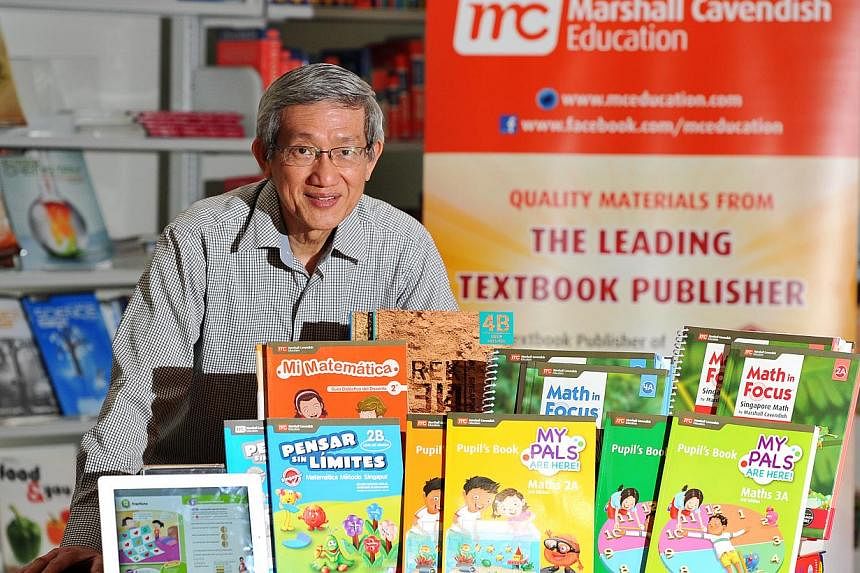Singapore mathematics is going places, and there are no signs of it slowing down.
From India to France and Chile, more countries have, in recent years, turned to the famed Singapore approach to teaching the subject, using visual means such as objects, pictures and diagrams to teach concepts.
Education officials and publishers abroad are paying closer attention to the way maths is taught here after Singapore students emerged tops in maths and problem-solving in international tests.
A total of 10 countries - including South Africa, Brunei and the Netherlands - are using customised textbooks based on Singapore maths produced by publisher Marshall Cavendish Education.
This is up from just two countries - Thailand and Libya - five years ago.
These books are based on a series of maths textbooks, called My Pals Are Here! The principal author of the books is Dr Fong Ho Kheong, 66.
Marshall Cavendish Education's maths materials are being used in 42 countries, where 40 to 100 per cent of schools use its textbooks.
The publishing giant has also partnered Oxford University Press to publish a new series based on Singapore maths for Britain next year.
Another publisher, Scholastic Australia, has also adopted Singapore maths in its new series called Prime Mathematics, used in Australia. The textbooks also incorporate good practices from South Korea and Hong Kong.
Scholastic Australia's head of education, Mrs Christine Vale, said a trial with the books started with three Australian schools in July, and has grown to 50 schools.
In India, 85 primary schools in areas such as Mumbai, New Delhi and Hyderabad have been using another version of the books - known as Alpha Mathematics - since April.
Dr Duriya Aziz, senior vice-president of Scholastic's international education unit, said there is more awareness of the importance of maths. "The focus for a long time was on literacy, but more countries recognise that to solve problems, you need good grounding in numeracy," she said.
Mrs Vale, a former primary school maths teacher, said: "There is interest in how maths is taught in Singapore because it is obviously very successful."
In the latest Programme for International Student Assessment, held in 2012, Singapore students came in second in maths, behind their peers in Shanghai.
Australia was ranked 19th.
Mr Jeffery Thomas and his Singaporean wife, Ms Dawn Yuen, who own a business selling Singapore textbooks in the United States, said sales have "increased significantly" in the past five years. Their company, Singapore Math Inc, distributes textbooks to several thousand schools in the US and Canada.
Mrs Vale said that while most topics such as fractions are similar, the methods developed by the Ministry of Education here allow children to build on their understanding gradually. "It goes more in-depth about each topic, whereas our schools tend to move quickly from one topic to another."
Ms Nita Arora, principal of Sri Venkateshwar International School in New Delhi, said teachers were sceptical at first about using the series, but are finding its methods helpful for children to understand concepts.
For instance, they learn fractions through means such as figures, paper-strip folding and a food-dividing activity section.
This has allowed the teachers to "think in many ways" and children to "relate to numeracy to everyday life", she said.


